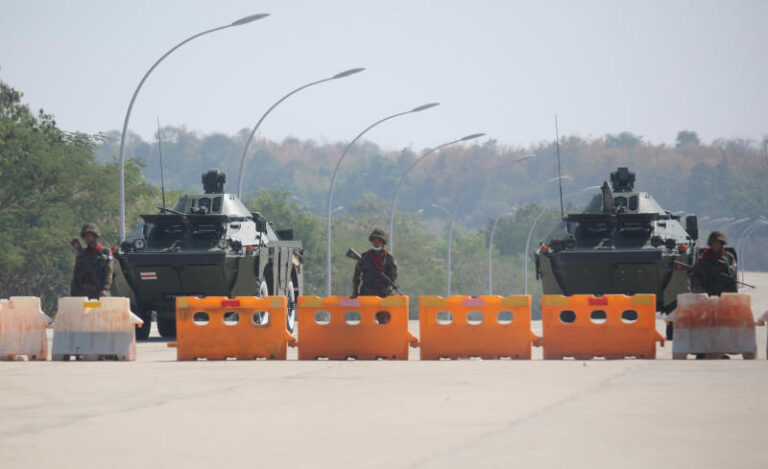The opposition in Myanmar claimed responsibility for orchestrating a large-scale drone attack targeting the country’s embattled military in the capital Nay Pyi Taw.
According to the National Unity Government (NUG), 29 drones armed with explosives were deployed to strike the airport, air force base, and military headquarters.
While the military reported shooting down seven drones, one exploded on the airport runway, officials said. Fortunately, no casualties were reported.
The NUG represents the elected civilian government led by Aung San Suu Kyi, which was ousted by a coup in 2021. Since then, it and other opposition groups have been engaged in conflict with the junta regime, resulting in the loss of significant territories to resistance fighters.
The country’s ongoing three-year civil war has resulted in thousands of casualties and displaced approximately 2.6 million people, according to the UN.
The assault on the capital on Thursday morning represents another audacious and infrequent intrusion by the resistance factions, underscoring their growing effectiveness in challenging the ruling junta.
Representatives from the NUG informed BBC Burmese that they had coordinated and strategized with various defense groups to carry out this operation.
Mg Mg Swe, the deputy secretary of the NUG, stated, “The synchronized drone operations were conducted simultaneously targeting both the military headquarters in Nay Pyi Taw and the Alar air base.”
The NUG, self-proclaimed as Myanmar’s government in exile, had earlier asserted that over 60% of the country’s territory was now under the control of resistance forces.
Prior to Thursday’s attack, the regime had experienced its most significant setback last October when an alliance of ethnic insurgents seized control of numerous military outposts along the border with India and China. Additionally, the junta has ceded significant territory to insurgents along the Bangladesh and Indian borders.
In February, amid the escalating conflict, the junta resorted to implementing mandatory conscription, compelling men aged 18 to 35 and women aged 18 to 27 to enlist.
Observers view the enforcement of this law as indicative of the junta’s weakening control over the country.



























